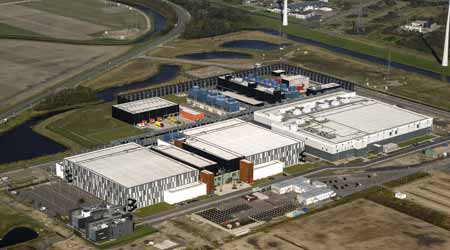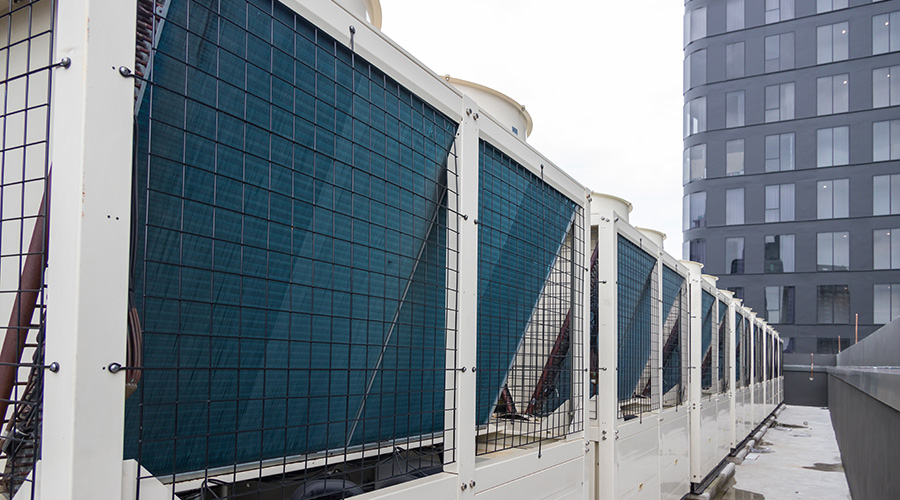 The demand for data processing capacity has led to the construction of large data centers and tightened schedules, potentially increasing safety risks.Aerovista Luchtfotografie / Shutterstock.com
The demand for data processing capacity has led to the construction of large data centers and tightened schedules, potentially increasing safety risks.Aerovista Luchtfotografie / Shutterstock.comTips for Improving Worker Safety During Data Center Construction
From better regulations and monitoring to technology like RFID and IoT, here are some best practices for improving worker safety during data center construction.
Although all work can’t be moved off-site, it is possible to regulate job sites. Safety can be improved by staffing sites with safety and management personnel, regulating temperature, and monitoring worker fatigue.
IoT and wearables have an important role. A software company called Eyrus outfits jobsites with sensors and hard hats with RFID tags to map workers’ physical locations. This may sound Orwellian, but these sensors ensure workers are in the correct area, monitor who is close to an unplanned incident, and allow for the dispatch of safety personnel and equipment to people out of bounds or in trouble. See a few crews converging on-site and working above and below one another unnecessarily? Immediately remedy the situation, using technology to create a safer culture.
SolePower work boots can similarly track location with GPS technology, and have the added benefit of fatigue tracking. The CAT SmartBand or SmartCap also play a role in safety monitoring, collecting cyclical rest period data used to estimate laborers’ potential effectiveness. This permits labor to be reallocated in real-time to maximize personal efficiency and mitigate both injury and risk to the schedule.
Extreme body temperatures introduce their own safety hazards, such as tissue damage or even death. Low-cost technologies such as portable heaters and coolers have been around for a long time. There is also technologically advanced clothing that can regulate body temperature: Battery operated M12 jackets and hoodies from Milwaukee Tool can help maintain an individual’s core body temperature for up to 8 hours per charge, and the Techniche Kewlshirt uses evaporative cooling, similar to the technology used to cool data centers, to lower body temperature.
Industry effort aims for safety
There are many steps the industry can take to make data center construction safer and more productive. A starting point is to evolve design standards and leverage off-site construction environments to yield the benefits of modular building. Adopting IoT devices can also help to ensure safety.
Several design-build contractors have been early adopters of the strategies described above and have started a Consortium for Safety in Data Center Construction and Operations. The mission of the consortium is to strengthen and promote safety standards and best practices through collaboration between industry leaders. Their aim is to elevate awareness, exchange lessons learned, and create a unified approach to the execution of safety measures in the construction — and ongoing facility operations — of data centers. The consortium has previously studied minimal thresholds of standards, technology, and wearable devices, and is currently studying safety in design to further awareness.
Christopher McLean (chris.mclean@mcdean.com), PE, is director of mission critical solutions for M.C. Dean. Aaron Schoemaker (aaron.schoemaker@mcdean.com), CSP, is director of safety for the firm.
Related Topics:














